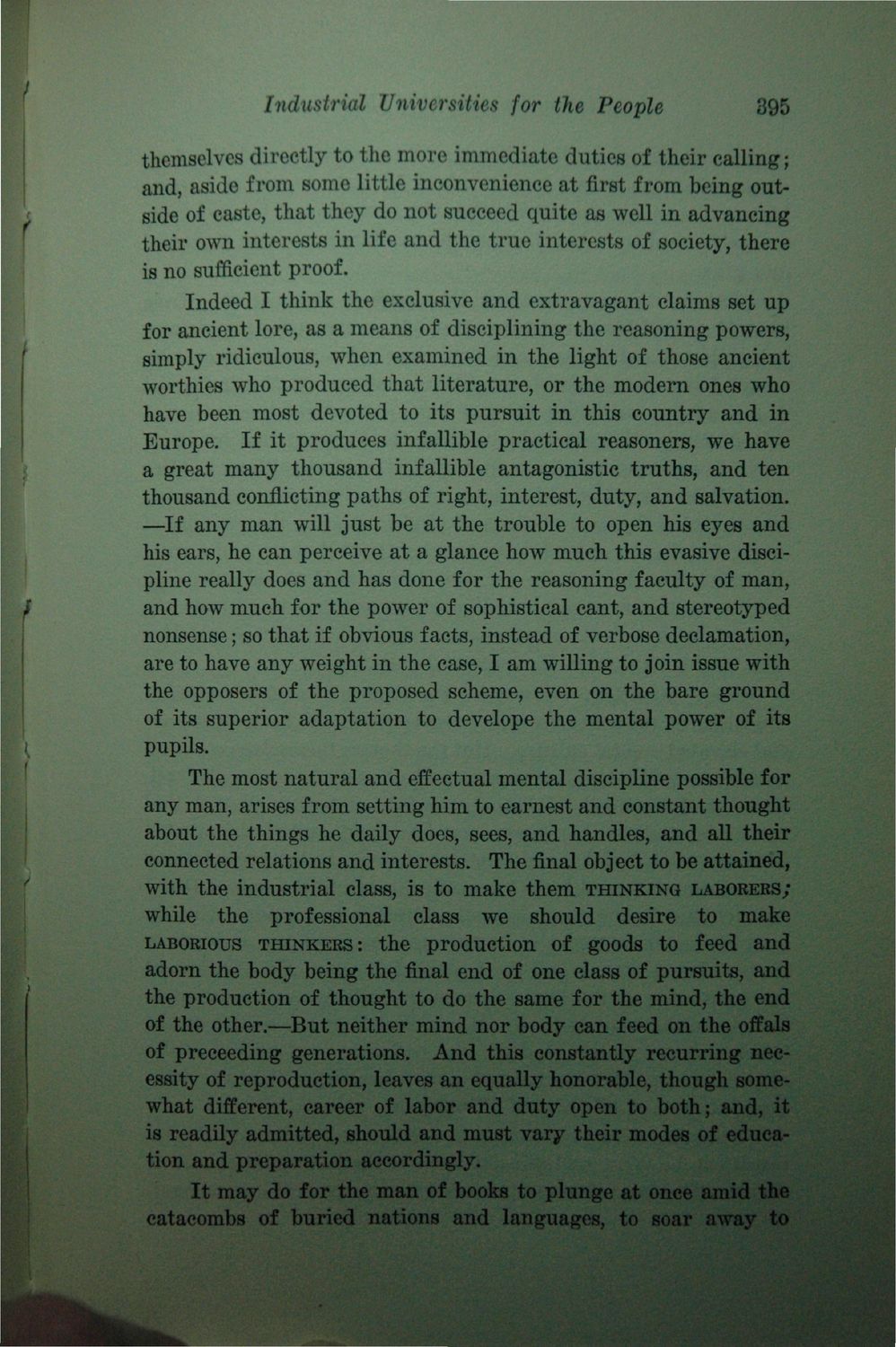| |
| |
Caption: Book - History of the University (Powell)
This is a reduced-resolution page image for fast online browsing.

EXTRACTED TEXT FROM PAGE:
Industrial Universities for the People 895 i i \ / themselves directly to the more immediate duties of their calling; and, aside from some little inconvenience at first from being outside of caste, that they do not succeed quite as well in advancing their own interests in life and the true interests of society, there is no sufficient proof. Indeed I think the exclusive and extravagant claims set up for ancient lore, as a means of disciplining the reasoning powers, simply ridiculous, when examined in the light of those ancient worthies who produced that literature, or the modern ones who have been most devoted to its pursuit in this country and in Europe. If it produces infallible practical reasoners, we have a great many thousand infallible antagonistic truths, and ten thousand conflicting paths of right, interest, duty, and salvation. —If any man will just be at the trouble to open his eyes and his ears, he can perceive at a glance how much this evasive discipline really does and has done for the reasoning faculty of man, and how much for the power of sophistical cant, and stereotyped nonsense; so that if obvious facts, instead of verbose declamation, are to have any weight in the case, I am willing to join issue with the opposers of the proposed scheme, even on the bare ground of its superior adaptation to develope the mental power of its pupils. The most natural and effectual mental discipline possible for any man, arises from setting him to earnest and constant thought about the things he daily does, sees, and handles, and all their connected relations and interests. The final object to be attained, with the industrial class, is to make them THINKING LABORERS; while the professional class we should desire to make LABORIOUS THINKERS: the production of goods to feed and adorn the body being the final end of one class of pursuits, and the production of thought to do the same for the mind, the end of the other.—But neither mind nor body can feed on the offals of preceeding generations. And this constantly recurring necessity of reproduction, leaves an equally honorable, though somewhat different, career of labor and duty open to both; and, it is readily admitted, should and must vary their modes of education and preparation accordingly. I t may do for the man of books to plunge at once amid the catacombs of buried nations and languages, to soar away to
| |